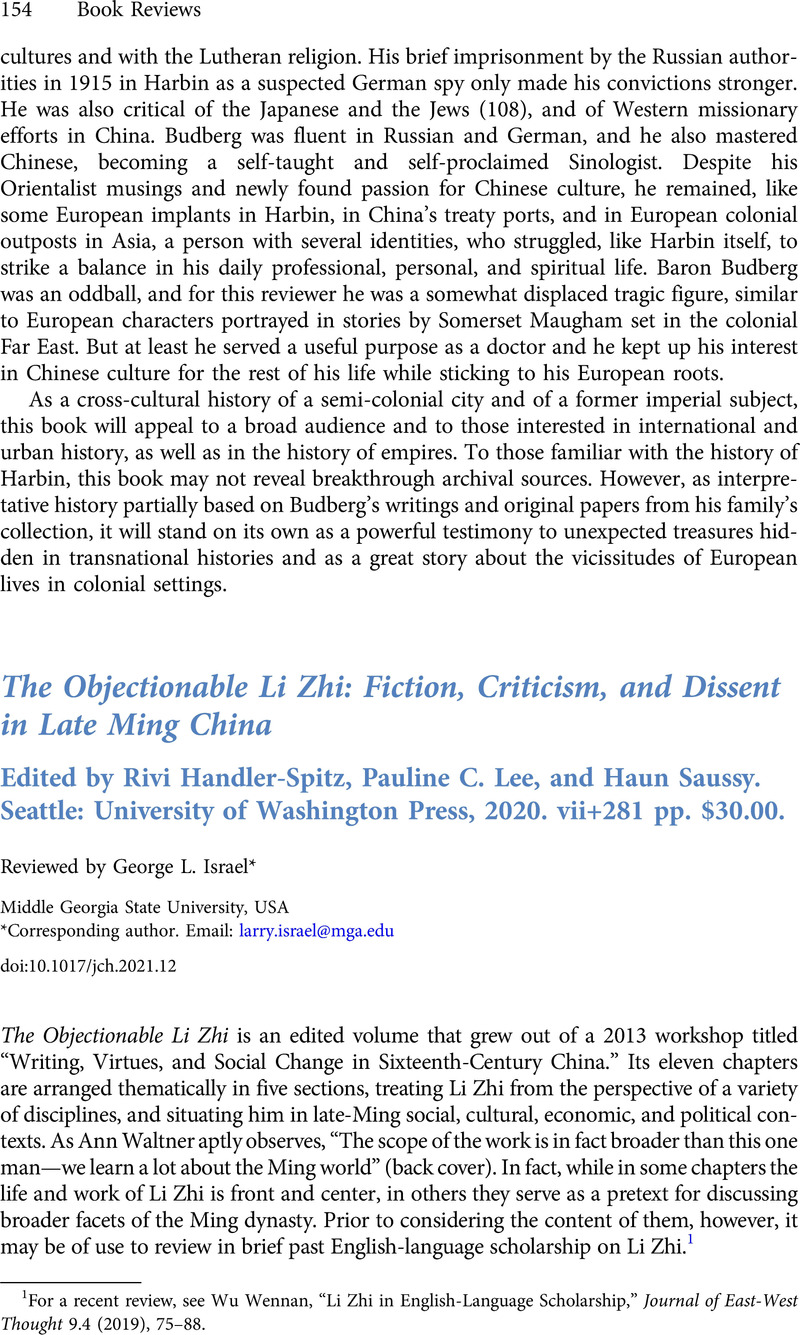No CrossRef data available.
Published online by Cambridge University Press: 08 July 2021

1 For a recent review, see Wennan, Wu, “Li Zhi in English-Language Scholarship,” Journal of East-West Thought 9.4 (2019), 75–88Google Scholar.
2 Pauline C. Lee, “Li Zhi (1527–1602): A Confucian Feminist in Late-Ming China” (PhD diss., Stanford University, 2002), 4.
3 See Hok-lam Chan, Li Chih (1527–1602) in Contemporary Historiography: New Light on His Life and Works (White Plains, NY: M.E. Sharpe, 1980); Franke, Wolfgang, “Some New Publications and Materials on Li Zhi,” Oriens Extremus 29.1–2 (1982): 137–47Google Scholar; and Cheng, Pei-kai, “Continuities in Chinese Political Culture: Interpretation of Li Zhi, Past and Present.” Chinese Studies in History 17.2 (1983), 4–29CrossRefGoogle Scholar.
4 See Hsiao, K.C., “Li Chih: An Iconoclast of the Sixteenth Century,” T'ien-hsia Monthly 6.4 (1938), 317–341Google Scholar; and Eng-Chew Cheang, “Li Chih as a Critic: A Chapter in Ming Intellectual History” (PhD diss., University of Washington, 1973).
5 Wm. Theodore de Bary, “Individualism and Humanitarianism in Late Ming Thought,” in Self and Society in Ming Thought, edited by Wm. Theodore de Bary (New York: Columbia University Press, 1970), 188.
6 Pei-kai Cheng, “Reality and Imagination: Li Chih and T'ang Hsien-tsu in Search of Authenticity” (PhD diss., Yale University, 1980).
7 Martin J. Heijdra, “Ming History: Three Hundred Years of History Still Searching for Recognition,” in A Scholarly Review of Chinese Studies in North America, edited by Zhang Haihui et al. (Ann Arbor, MI: Association for Asian Studies, 2013), 79–98.
8 Li Zhi, A Book to Burn and a Book to Keep Hidden: Selected Writings, edited and translated by Rivi Handler-Spitz, Pauline C. Lee, and Haun Saussy (New York: Columbia University Press, 2016). For a list of earlier translations by K.C. Hsiao, Clara Yu, Stephen Own, Yang Ye, and Pauline C. Lee, see Wu Wennan, “Li Zhi,” 80–81.
9 For more background, see Huang, Martin W., Male Friendship in Ming China (Leiden: Brill, 2007)CrossRefGoogle Scholar.